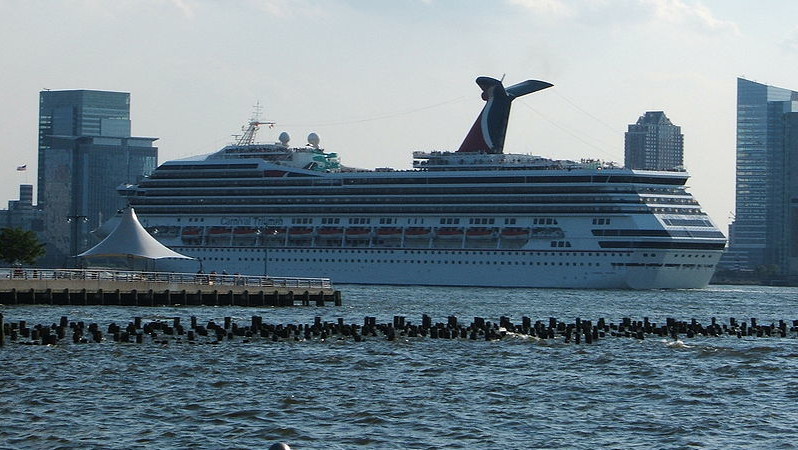Since last week’s Carnival Triumph debacle, Carnival Corp., owner of the cruise line, has had a lot of explaining to do. Concerned consumers as well as analysts have suggested that, as it expands its operations to more ships with higher passenger capacities, Carnival needs to confront the engineering related problems that led to the Triumph’s 4,200 passengers and crew floating helpless for five days in the Gulf of Mexico. But there are others who are taking this opportunity to critique some facets of the cruise industry that otherwise go unmentioned.
Yesterday, the New York Times ran a story on Charleston, South Carolina’s experiences as a coastal city balancing the economic benefits of cruise ships against their cultural impact. The South Carolina Ports Authority’s proposed $35 million cruise terminal would, according to port officials, bring $37 million a year to Charleston in cruise traffic. But the terminal has found opponents in preservationist groups and homeowners, worried that an already compromised historic district in Charleston would be threatened by cruise industry expansion. These groups and homeowners understand that while the cruise lines bring business, their loyalties are to their passengers and their shareholders, not to the cities that they use for their ports.
Charleston’s unease is surely warranted when one looks at what’s happened to a city like Mobile, Alabama. In 2004, Mobile eagerly sought out Carnival Cruise Lines to use it as a port, ultimately winning the cruise line over when Mobile borrowed $20 million to build a cruise ship terminal. In 2011, however, Carnival left Mobile, citing a lack of popularity and rising fuel costs. Never mind that in 2007 Carnival Cruise Lines named Mobile its port of the year, or that business was going so well in 2009 that Mobile spent almost $3 million on a new gangway. Carnival, like all others major players in the cruise industry, has no reason or incentive to stay loyal to cities that cannot afford to give them the best deal. Our vulnerable American cities are no match for a cruise industry that settles where it pleases, without any regard for the well being of our citizens.
Basically, I am arguing that the cruise industry’s insistence that the events around the Triumph are being blown out of proportion should be dutifully ignored. Especially as the cruise industry wins victories in Alaska for the creation of wastewater mixing zones that effectively position the state as a prime destination for the expanding industry, we who are concerned with the environmental and cultural costs of this expansion must, at least, take critical notice.
Although any regulation of the cruise industry has already proved to be an immensely complicated task, attempts remain incredibly important. In 2009, Senator Dick Durbin from Illinois and Representative Sam Farr from California introduced the Clean Cruise Ship Act as a means of establishing “national standards for discharges from cruise vessels.” Unfortunately, the bill died in Congress a year later, referred to the Subcommittee on Water Resources and the Environment. What the act would have done, among other things, is require the US Coast Guard to put an independent inspector on each ship to monitor how it discharges waste. This would have been a solution for the EPA, which has already identified the problems of cruise ship wastewater discharges but has not yet devised a plan for acting on their findings.
Cruise ships are American economic and social spaces; most of the 20 million passengers who went on cruises worldwide in 2012 were from the US. If we continue to thoughtlessly sponsor and let go unregulated an industry that devalues our cultural history and our environment (along with our ideal that hard work should pay off), we will contribute to the undermining of some of our nation’s most sacred values. Let’s keep a watch on the cruise industry and remember what really matters.
